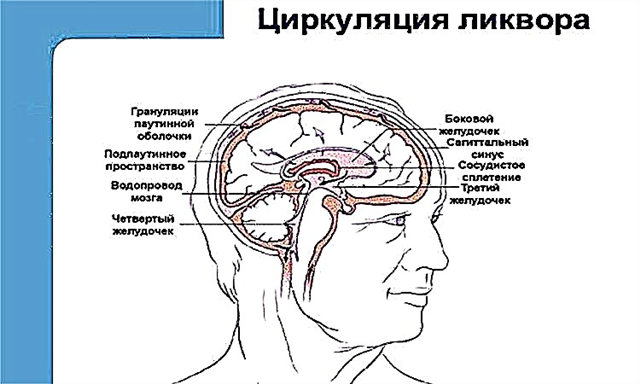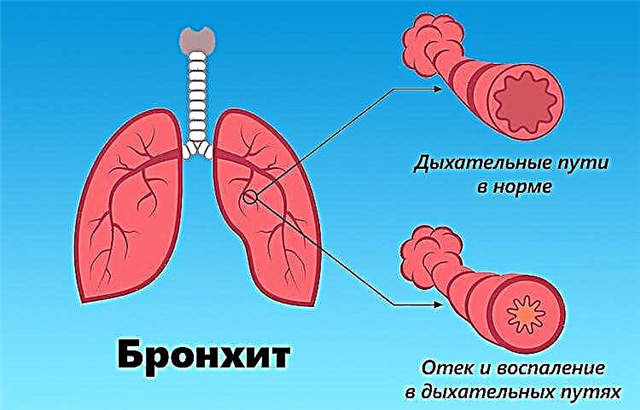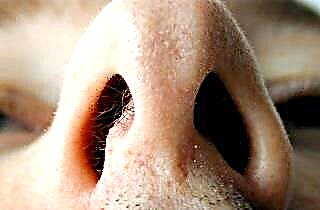Treatment of arterial hypertension should begin when the first symptoms appear. Only in this case it is possible to achieve a stable remission and a significant improvement in the condition. For this purpose, effective treatment regimens for hypertension have been drawn up. If you postpone the visit to the doctor, then the disease can move to a new stage and the likelihood of complications increases.
Modern drugs
 The standard of treatment for hypertension is a combination of several approaches of classical medicine. There is a specific protocol that prescribes the actions of the doctor. It begins with examining the patient, interviewing, referral for examination, analyzing the results and drawing up a course of therapy. Based on the standard and generally accepted protocols, the doctor will be able to draw up an effective treatment for hypertension. First, the patient needs to go to the hospital at the place of residence. The further course of therapy will consist of the following stages:
The standard of treatment for hypertension is a combination of several approaches of classical medicine. There is a specific protocol that prescribes the actions of the doctor. It begins with examining the patient, interviewing, referral for examination, analyzing the results and drawing up a course of therapy. Based on the standard and generally accepted protocols, the doctor will be able to draw up an effective treatment for hypertension. First, the patient needs to go to the hospital at the place of residence. The further course of therapy will consist of the following stages:
- hospital therapy;
- ambulatory treatment;
- rest and recovery, preferably in a sanatorium or resort.
In stationary conditions, the patient is examined, the doctor daily analyzes the patient's condition, prescribes medications and various procedures. When a person gets better, they are discharged to continue the course of therapy on an outpatient basis.
How to properly treat hypertension after discharge:
- The patient should go to the local doctor at the place of registration.
- He will be offered to undergo a course of physiotherapy, he will definitely need to change his lifestyle and take medications.
- If high blood pressure was detected during therapy, the specialist will adjust the treatment regimen. In the absence of complaints, the patient will be advised to rest more and go to a sanatorium or resort. The doctor will also list clinical guidelines that will have to be followed throughout life.
Drug treatment is the mainstay of therapy for most diseases. It is used to relieve high blood pressure in the later stages of hypertension. In the early stages, it is mainly lifestyle correction that helps.
In the treatment of hypertension, consistency and the correct selection of medications are important.
When making a choice of drugs, the doctor focuses on the following factors:
- the financial condition of the patient;
- the presence of chronic pathologies;
- the stage in which hypertension is located;
- risk factors;
- the state of the cardiovascular system.
ACE inhibitors
According to many experts, ACE inhibitors are great for helping to cope with hypertension. Due to their effect on the body, high blood pressure gradually decreases, and against this background, the risk of complications decreases. In people with chronic heart failure, with prolonged use of ACE inhibitors, the general condition and prognosis of the further development of pathology improves.
ACE inhibitors help relieve blood pressure by blocking the production of angiotensin I, from which angiotensin II is supposed to be formed. The latter causes vasospasm, which is why hypertension develops. Without angiotensin II, the patient's pressure drops, the degree of myocardial hypertrophy decreases.
Treatment of arterial hypertension with ACE inhibitors may not be effective over time. With long-term use of drugs from this group, the second way of synthesis of angiotensin II gradually becomes more relevant, namely, with the help of chymase in the organs and tissues of the body. In addition, taking ACE inhibitors can cause sore throat and coughing. For the treatment of high blood pressure from this group, the following drugs are used:
- Enal;
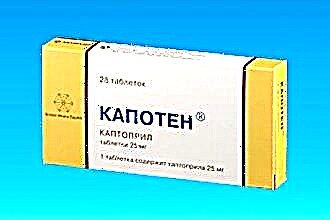
- "Kapoten" (used for crises);
- "Amprilan";
- Akcupro;
- "Zokardis";
- Diroton;
- "Monopril".
Treatment of hypertension should be started with low doses of inhibitors. They are gradually increased in order to achieve a stable remission. Getting rid of blood pressure will not be easy, the whole process will take at least 3-4 weeks. Then you will need to take medications for prophylactic purposes for an even longer time (not less than a year). The use of ACE inhibitors is prohibited in such cases:
- pregnancy;
- angioedema due to the use of similar drugs;
- narrowing of the lumen of the arteries that feed the kidneys;
- excess potassium in the body.
Sartans
Sartans are also called angiotensin II receptor blockers in medicine, abbreviated as ARBs. The effects of this group of drugs are similar to those of ACE inhibitors. However, sartan makes angiotensin receptors completely insensitive to it, so the second way of synthesizing this enzyme will not manifest itself over time. For this reason, ARB treatment of blood pressure is more consistent. There are practically no side effects after taking the medication, but in rare cases, a cough appears. The following drugs from this group can help get rid of pressure:
- Lorista;
- "Aprovel";
- Mikardis;
- "Atakand";
- Valz;
- "Edarbi";
- Teveten;
- "Karsoad".

Calcium antagonists
Calcium antagonists are called calcium channel blockers. With arterial hypertension, treatment with them allows you to get rid of high blood pressure by expanding blood vessels and reducing their overall resistance. The result is achieved by blocking the intake of calcium. Thus, the sensitivity of the vessels to vasoconstrictor factors is reduced.
Long-term intake of calcium antagonists helps not only with how to treat hypertension, but also allows you to achieve the following results:
- Reducing the likelihood of blood clots.
- Reducing the chance of developing complications of high blood pressure.
- Slowing down the formation of atherosclerotic plaques on the walls of blood vessels.
- Reduction of left ventricular hypertrophy.
For the treatment of arterial hypertension, 3 groups of calcium antagonists are used. Each of them has its own characteristics.
- Dihydropyridines. They do not particularly affect myocardial contraction and cardiac conduction. Dihydropyridines act selectively on the vessel wall. At high pressure, treatment with them allows you to quickly stabilize the patient's condition. Preparations from the group of dihydropyridines are of short and prolonged action. Among them are "Kordaflex", "Nifecard" and "Lekarmen". With long-term use, dihydropyridines can cause edema.
- Phenylalkylamines. The essence of their action is to reduce the conduction of the heart, due to which the intensity of heart contractions decreases. Phenylalkylamines do not act on distant (peripheral) vessels. In case of hypertension, treatment consists of taking Isoptin or Finoptin tablets.
- Benzodiazepines. They are similar in effect to phenylalkylamines. However, benzodiazepines are capable of slightly narrowing blood vessels, therefore, with high pressure, their treatment should be carried out under the strict supervision of a physician. Diltiazem can be distinguished from this group.
Diuretics
The effect of diuretics (diuretics) on the body has been studied well enough to use this group of drugs to treat hypertension. They rid the patient's body of excess moisture, thereby reducing the severity of hypertension. With long-term use, diuretics cause a deficiency of potassium in the body, which helps muscles to contract. If the supply of minerals is not replenished on time, the patient may experience seizures. To this end, in hypertension, treatment includes taking medications that contain calcium (Asparkam) or use potassium-sparing diuretics (Triamteren).
How to beat hypertension? The following representatives of the diuretic group will help in this matter:
- "Hypothiazide";
- "Trigrim";
- "Furasemide";
- "Diakarb".
B-blockers
They act on beta-adrenergic receptors, thereby reducing the effect of the sympathoadrenal system (SAS) on the heart. Against this background, the intensity of heart contractions decreases and renin synthesis in the kidneys stops. Modern treatment of hypertension allows the use of beta-blockers in such cases:
- if arterial hypertension is accompanied by tachycardia;
- after a heart attack;
- in the presence of angina pectoris (pain in the chest);
- if heart failure develops.
Among this group of drugs, the most popular ones can be distinguished:
- "Concor";
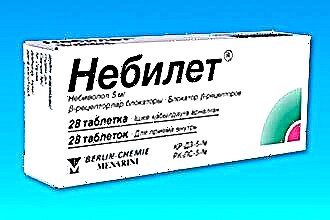
- Lokren;
- "Nebilet";
- Coriol;
- Egilok.
Beta-blockers will not be able to help get rid of hypertension forever, but they are able to stabilize the pressure at the time of admission. It is prohibited to use them for asthma and blockade of the atrioventricular center of 2-3 degrees.
Imidazoline receptor agonists
Imidazoline receptor agonists act on the central nervous system. Especially on I2-imidazoline receptors, which are localized in the medulla oblongata. The influence of drugs from this group reduces the activity of the sympathetic division of the autonomic (autonomic) nervous system. As a result of this process, the pressure and contraction of the heart muscle are stabilized.
Imidazoline receptor agonists help not only treat hypertension, but also improve metabolic processes, especially carbohydrate and fat. In addition, it has a positive effect on the brain, kidneys and cardiovascular system.
Of the representatives of this group, the following drugs are most often used:
- Moksarel;
- Moxonitex;
- Albarel;
- "Moxonidine" (for crises).
Arterial hypertension is just one of the diseases in which imidazoline receptor agonists are prescribed. They are often used in the complex treatment of obesity and diabetes mellitus. It is prohibited to use medicines from this group in such cases:
- renal and heart failure;
- bradycardia (with a pulse less than 50);
- weakness of the sinus node;
- coronary syndrome.
Sometimes even a doctor finds it difficult to understand how to treat high blood pressure if the severity of the disease does not decrease. In such situations, the use of additional medications is allowed:
- renin inhibitors (Aliskiren);
- alpha-blockers (Alfuzosin, Doxazosin, Prazosin).
If you correctly combine the main antihypertensive drugs with additional ones, you can improve the metabolism in the body. This will help get rid of the high blood pressure permanently. However, it is necessary to use renin inhibitors and alpha-adrenergic receptors only in complex therapy, and not as the only medicine. Comprehensive treatment of any pathology, including the fight against hypertension, consists in a combination of medications. Basically, doctors prescribe the following combinations of drugs:
- ACE inhibitor together with sartan and a diuretic.
- ACE inhibitor together with sartan and a calcium channel blocker.
- ACE inhibitor, diuretic and calcium channel blocker.
Treatment for low blood pressure (hypotension) is to take the following medications:
- Adaptogens. They are used due to their ability to constrict and increase vascular tone. Against the background of therapy, the patient's blood pressure, pulse and working capacity increase. Low blood pressure is treated with adaptogens such as Pantokrin or Saparal. Instead of pills, in mild cases, you can drink red wine, for example, "Cahors" for 1 tbsp. l. in a day.
- Alphaadrenomimetics. They are used with a strong drop in pressure, they act on alpha-adrenergic receptors, as a result of which the pressure rises and the vessels narrow. Most often used are "Gutron", "Midamin" and "Mezaton".
Nephrogenic hypertension therapy
Arterial hypertension is not always a consequence of impaired metabolism, vascular and heart disease. Sometimes the problem is in the kidneys.
This type of disease is called nephrogenic hypertension. It occurs due to neoplasms, vascular diseases, birth defects and inflammatory processes in the kidneys.
Treatment for nephrogenic arterial hypertension is based on the cause of the disease.  To eliminate inflammation, "Ceftriaxone" or "Gatifloxacin" are used. Neoplasms and congenital anomalies are eliminated with the help of surgical intervention. Simultaneously with the elimination of the cause of nephrogenic arterial hypertension, it is necessary to control the pressure and take antihypertensive drugs to stabilize it.
To eliminate inflammation, "Ceftriaxone" or "Gatifloxacin" are used. Neoplasms and congenital anomalies are eliminated with the help of surgical intervention. Simultaneously with the elimination of the cause of nephrogenic arterial hypertension, it is necessary to control the pressure and take antihypertensive drugs to stabilize it.
Surgical intervention
For many people, the answer to the question "how to get rid of hypertension forever" is surgery. But even with high-quality and timely intervention, it is necessary to maintain a healthy lifestyle, otherwise everything will quickly return to its place. Surgery is often used in severe cases of vascular obstruction, in the absence of the effect of drug treatment.
In surgery, the 2 most common methods of intervention are used:
- Percutaneous angioplasty. The essence of such an operation is the introduction of a catheter with a balloon into the vessel to improve its conductivity. The procedure is contraindicated for people with too narrow an artery passage or with its complete blockage. In rare cases, a vessel may rupture during catheter insertion.
- Open surgery. Unlike percutaneous angioplasty, this type of surgery is more traumatic. The patient will have to spend a lot of time under anesthesia and the recovery period will be much longer. The essence of open surgery is to remove the plaque that appears along with a piece of the vessel. Its place will be taken by an artificial or own transplanted vessel. Due to this procedure, an effective treatment of hypertension can be carried out, since it will be possible to restore damaged arteries. This is especially true with extensive atherosclerosis.
Other treatments
 Arterial hypertension has many causes, and for effective treatment it is necessary to combine several methods of lowering the pressure. Other modern methods include:
Arterial hypertension has many causes, and for effective treatment it is necessary to combine several methods of lowering the pressure. Other modern methods include:
- Laser therapy. It is suitable for combination with medicines. It is carried out in courses and is divided into a contact-mirror method of exposure and a distant one. The essence of how to properly treat hypertension of the first type is the effect of a laser through a mirror attachment. After 2-3 sessions, patients feel relief and relief of symptoms characteristic of hypertension. Distal laser treatment is performed at a distance from the body. The effect of the therapy becomes noticeable after the first exposure. If there is no result, the doctor will return to the contact-mirror type of treatment.
- Indian technique. Its essence lies in the treatment with iodine. It will have to be applied in September and March on certain areas of the skin, depending on the day of the week. Such a method will indicate how to deal with hypertension on your own, but doctors do not guarantee its effectiveness, since it is unconventional.
- Head massage. This method is considered the simplest and helps to treat high blood pressure without leaving home. To complete it, you will need to ask someone to carry out the procedure. First, you need to stroke the head against the growth of the hair, and then massage the back of the head and neck. Finally, go to the upper back and shoulder blades. Each stage is given 2 minutes.
Therefore, the treatment of arterial hypertension should be carried out under the guidance of a doctor, who will have to examine and interview the patient, and then send him for examination.Focusing on the results obtained, the specialist will be able to explain how to deal with hypertension on his own, and draw up a therapy regimen in accordance with accepted standards.



